14 start with P start with P

Perceptual Acquaintance was first published in 1984. Minnesota Archive Editions uses digital technology to make long-unavailable books once again accessible, and are published unaltered from the original University of Minnesota Press editions.
Philosophers, wrote Thomas Reid in 1785, "all suppose that we perceive not external objects immediately, and that the immediate objects of perception are only certain shadows of the external objects." To Reid, a founding father of the common-sense school of philosophy, John Locke's "way of ideas" threatened to supplant, in human knowledge, the world of physical objects and events—and to point down the dreaded path to scepticism.
John Yolton finds Reid at least partly responsible for this standard (and by now stereotypic) account of Locke and his eighteenth-century British successors on the subject of perception. By carefully examining the writings of Descartes and the Cartesians, and Locke and his successors, Yolton is able to suggest an alternative to this interpretation of their views. He goes back to a wide range of original texts—those of the period's major philosophers, to Descartes' scholastic precursors, to obscure pamphleteers, and to writers on religion, natural philosophy, medicine, and optics—all in an effort to help us understand the issues without the interference of modern labels and categories. The subtle changes over time reveal an important transformation in the understanding of perception, yet one that is prefigured in earlier work, contrary to Reid's view of the past. Included in Yolton's reevaluation is a full account of the role of Berkeley and Hume in the study of perceptual acquaintance, and of the connection between their work.
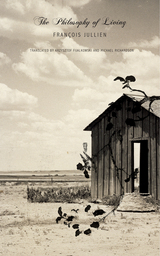
Living holds us between two places. It expresses what is most elementary—to be alive—and the absoluteness of our aspiration—finally living! But could we desire anything other than to live? In The Philosophy of Living, François Jullien meditates on Far Eastern thought and philosophy to analyze concepts that can be folded into a complete philosophy of living, including the idea of the moment, the ambiguity of the in-between, and what he calls the “transparency of morning.” Jullien here develops a strategy of living that goes beyond morality and dwells in the space between health and spirituality.
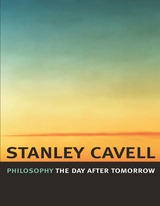
Nietzsche characterized the philosopher as the man of tomorrow and the day after tomorrow--a description befitting Stanley Cavell, with his longtime interest in freedom in the face of an uncertain future. This interest, particularly in the role of language in freedom of the will, is fully engaged in this volume, a collection of retrospective and forward-thinking essays on performative language and on performances in which the question of freedom is the underlying concern.
Seeking for philosophy the same spirit and assurance conveyed by an artist like Fred Astaire, Cavell presents essays that explore the meaning of grace and gesture in film and on stage, in language and in life. Cavell's range is broad--from Astaire to Shakespeare's soulful Cordelia. He also analyzes filmic gestures that bespeak racial stereotypes, opening a key topic that runs through the book: What is the nature of praise? The theme of aesthetic judgment, viewed in the light of "passionate utterance," is everywhere evident in Cavell's effort to provoke a renaissance in American thought. Critical to such a rebirth is a recognition of the centrality of the "ordinary" to American life. Here Cavell, who has alluded to Thoreau throughout, takes up the quintessential American philosopher directly, and in relation to Heidegger; he also returns to his great philosophical love, Wittgenstein. His collection of essays ends, appropriately enough, with an essay on collecting.
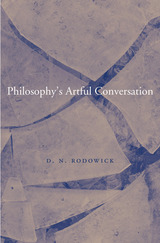
Theory has been an embattled discourse in the academy for decades. But now it faces a serious challenge from those who want to model the analytical methods of all scholarly disciplines on the natural sciences. What is urgently needed, says D. N. Rodowick, is a revitalized concept of theory that can assess the limits of scientific explanation and defend the unique character of humanistic understanding.
Philosophy’s Artful Conversation is a timely and searching examination of theory’s role in the arts and humanities today. Expanding the insights of his earlier book, Elegy for Theory, and drawing on the diverse thought of Ludwig Wittgenstein, G. H. von Wright, P. M. S. Hacker, Richard Rorty, and Charles Taylor, Rodowick provides a blueprint of what he calls a “philosophy of the humanities.” In a surprising and illuminating turn, he views the historical emergence of theory through the lens of film theory, arguing that aesthetics, literary studies, and cinema studies cannot be separated where questions of theory are concerned. These discourses comprise a conceptual whole, providing an overarching model of critique that resembles, in embryonic form, what a new philosophy of the humanities might look like.
Rodowick offers original readings of Gilles Deleuze and Stanley Cavell, bringing forward unexamined points of contact between two thinkers who associate philosophical expression with film and the arts. A major contribution to cross-disciplinary intellectual history, Philosophy’s Artful Conversation reveals the many threads connecting the arts and humanities with the history of philosophy.
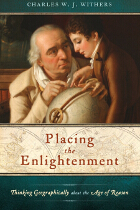
The Enlightenment was the age in which the world became modern, challenging tradition in favor of reason, freedom, and critical inquiry. While many aspects of the Enlightenment have been rigorously scrutinized—its origins and motivations, its principal characters and defining features, its legacy and modern relevance—the geographical dimensions of the era have until now largely been ignored. Placing the Enlightenment contends that the Age of Reason was not only a period of pioneering geographical investigation but also an age with spatial dimensions to its content and concerns.
Investigating the role space and location played in the creation and reception of Enlightenment ideas, Charles W. J. Withers draws from the fields of art, science, history, geography, politics, and religion to explore the legacies of Enlightenment national identity, navigation, discovery, and knowledge. Ultimately, geography is revealed to be the source of much of the raw material from which philosophers fashioned theories of the human condition.
Lavishly illustrated and engagingly written, Placing the Enlightenment will interest Enlightenment specialists from across the disciplines as well as any scholar curious about the role geography has played in the making of the modern world.

In May 1908 William James, a gifted and popular lecturer, delivered a series of eight Hibbert Lectures at Manchester College, Oxford, on “The Present Situation in Philosophy.” These were published a year later as A Pluralistic Universe.
During the preceding decade James, as he struggled with deep conflicts within his own philosophic development, had become increasingly preoccupied with epistemological and metaphysical issues. He saw serious inadequacies in the forms of absolute and monistic idealism dominant in England and the United States, and he used the lectures to attack the specific form that “vicious intellectualism” had taken. In A Pluralistic Universe James captures a new philosophic vision, at once intimate and realistic. He shares with his readers a view of the universe that is fresh, active, and novel. The message conveyed is as relevant today as it was in his time.
This is the fourth volume of The Works of William James in an authoritative edition sponsored by the American Council of Learned Societies. Prepared according to modern standards of textual scholarship, this series utilizes all available published and unpublished materials; its texts have been awarded the seal of approval of the Center for Editions of American Authors. Frederick Burkhardt is General Editor; Fredson Bowers, Textual Editor; Ignas K. Skrupskelis, Associate Editor.
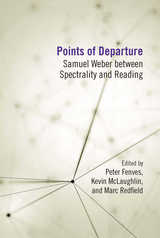
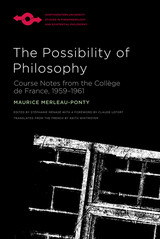

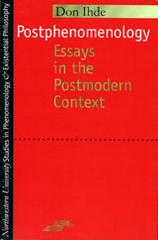
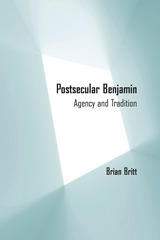
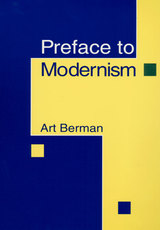
literature through empiricism, idealism, and romanticism. Berman demonstrates how
modern social, political, and scientific developments -- including capitalism, socialism,
humanism, psychoanalysis, fascism, and modernism itself -- have altered attitudes toward
time, space, self, creativity, the natural world, and community. "Deserves careful study."
-- Choice
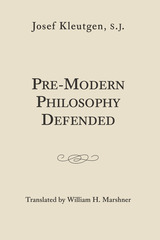
“Pre-modern philosophy” means the line of reflection that started with Plato andvAristotle, passed through Augustine and Boethius, and reached its acme in Aquinas, Scotus, and Suarez. The whole line was harshly judged by Descartes, then mocked by the empiricsts of the 18th Century. Why, then, did Pope Leo XII make a determined effort to revive it? And, more importantly, why was the revival a stunning success by the middle of the 20th Century?
The answers to both questions are found in a famous German book, Philosophie der Vorzeit by Josef Kleutgen, now available for the first time in English. Pre-ModernPhilosophy Defended shaped and strengthened Pope Leo’s resolve. It showed how inaccurate the harsh judgments had been and how sadly inferior the modern replacements from Descartes to Hegel had turned out to be in many respects.
Not in all. Kleutgen was no knee-jerk reactionary. He made no bones about the obsolete status of pre-Newtonian physics and cosmology. Rather, he focused on the central boast of “modern” thought, namely, that it had turned at least to the “subject” and had provided a long-needed thing called a “critique of knowledge.”
This book is must reading for intellectual historians and for philosophers working today in epistemology. But most of all, it is essential reading for laity and clergy concerned about revivals of modernism in the church. What was modernism, after all, but an attempt to make the Church revise her theology in the “light” of Kant or Hegel? This is why every Modernist knew Kleutgen’s name and hated this book.
Here is the first English translation (from the German) of the master work of Josef Kleutgen, the nineteenth century social philosopher whose thought lies at, or near, the heart of Catholic Social Thought. Kleutgen is widely and rightly seen as the shadow author of the social encyclicals of Leo XII. Leo’s Rerum Novarum remains the origin and constant reference point of all Catholic Social Teaching. And Popes since have dated their own social encyclicals from Rerum Novarum – hence, Quadragesimo anno and Centesimus annus. —Gerard V. Bradley, University of Notre Dame
Pre-Modern Philosophy Defended is must reading for intellectual historians and for philosophers working today in epistemology. And it is essential reading for laity and clergy concerned about revivals of modernism in the church. What was modernism, after all, but an attempt to make the Church revise her theology in the ‘light’ of Kant or Hegel? This is why every Modernist knew Kleutgen's name and hated Philosophie der Vorzeit (Pre-Modern Philosophy Defended).
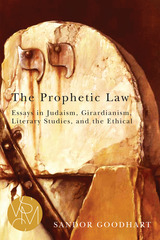
READERS
Browse our collection.
PUBLISHERS
See BiblioVault's publisher services.
STUDENT SERVICES
Files for college accessibility offices.
UChicago Accessibility Resources
home | accessibility | search | about | contact us
BiblioVault ® 2001 - 2024
The University of Chicago Press









